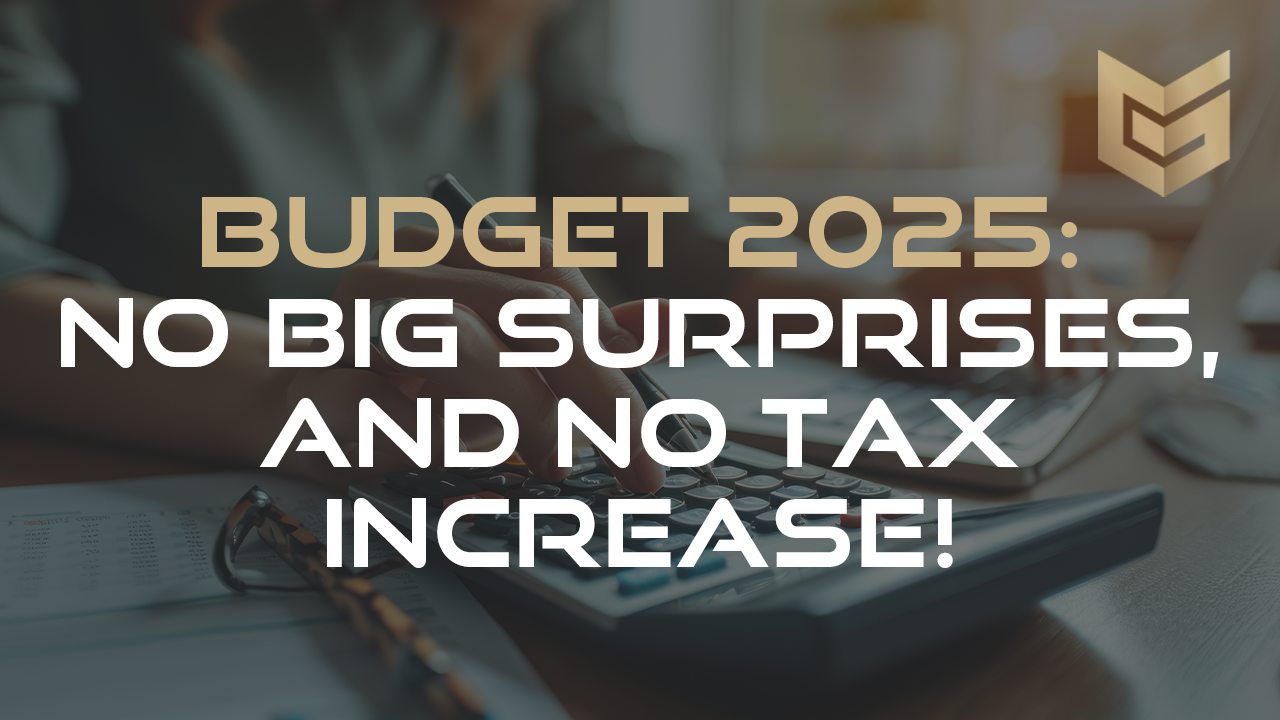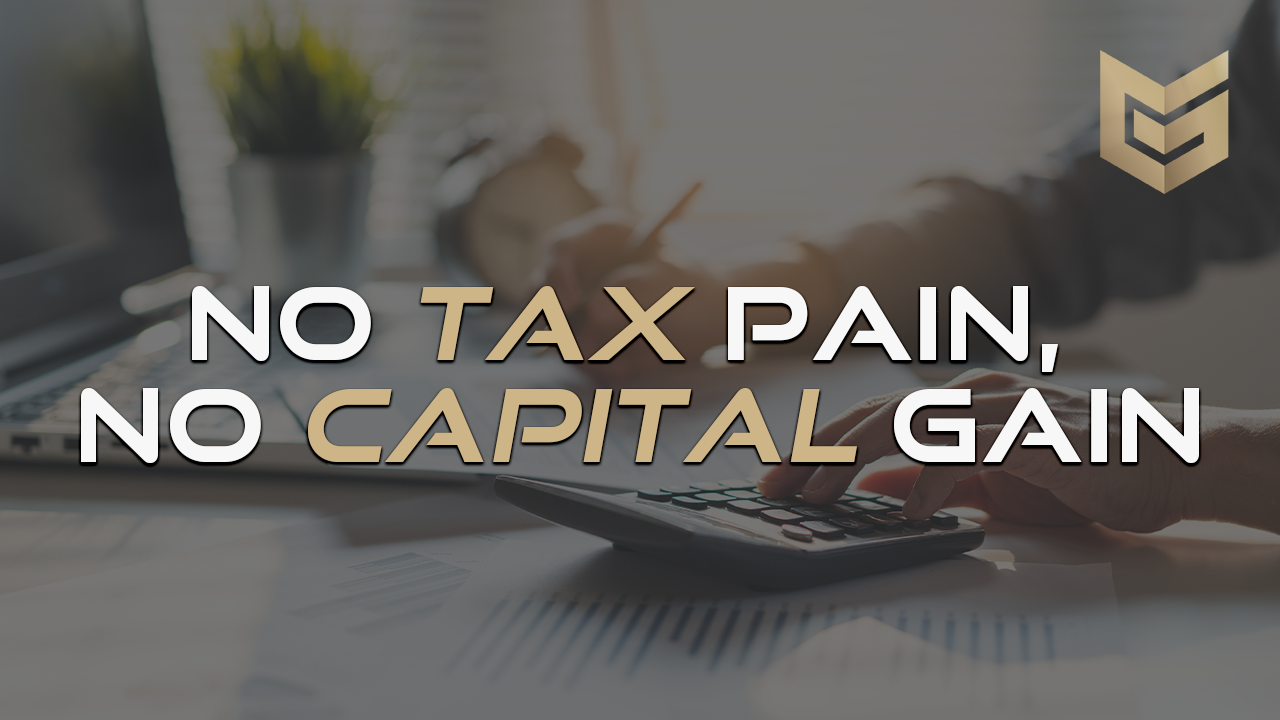Should I Trigger my Capital Gains by the June 24 Deadline?
In our last Tax News from June 1, 2024, we addressed the upcoming changes to the capital gains inclusion rate – from 1/2 to 2/3 – effective June 25,...
On April 16, 2024, the Honourable Chrystia Freeland, Canada’s Deputy Prime Minister and Minister of Finance, tabled the 2024 Federal Budget.
Here are just a few of the highlights:
Our tax team has combed through the 500+ pages of budget documents, and our commentary below focuses only on the proposed tax changes that are most likely to be of interest or concern to our clients who are business owners or have a high net worth. If you’re interested in how the Federal government plans to spend taxpayer dollars for the coming year, including on measures such as healthcare, housing, student loans, and other priorities, or in reading on some of the more niche tax proposals, you can access the budget documents at this link.
Note that these measures are proposed and not yet law until draft legislation passes all required readings in the House of Commons and Senate and receives royal assent.
PERSONAL INCOME TAX MEASURES
Capital Gains Inclusion Rate
The 2024 Federal Budget proposes to increase the inclusion rate from 1/2 to 2/3 for all capital gains realized by corporations and trusts, as well as certain capital gains in excess of $250,000 realized in a year by individuals, effective for dispositions occurring on or after June 25, 2024.
Here are our some of our observations and initial thoughts on how this change may affect individuals, with our comments for corporations and trusts following in another section:
Keep in mind that the government has not provided any draft legislation for this new measure, and so these rules, and our interpretation of them, may change once that legislation becomes available.
Lifetime Capital Gains Exemption (LCGE)
The 2024 Federal Budget proposes to increase the LCGE from the current lifetime limit of $1,016,836 to $1.25 million for dispositions that occur on or after June 25, 2024. The exemption would continue to apply only to capital gains realized on the disposition of qualified small business corporation shares and qualified farm or fishing property. The LCGE’s indexation to inflation would be temporarily paused and would resume in 2026.
As a planning point, those with a pending sale of shares or property that qualifies for the LCGE and which closes prior to June 25, 2024, may want to consider whether deferring the sale is possible to access the increased exemption, while considering any associated risks of doing so.
Canadian Entrepreneurs’ Incentive (CEI)
The CEI introduces a new way for small business owners to reduce the effective tax rate on a capital gain realized on a sale of certain qualifying shares by reducing the inclusion rate by one half of the prevailing inclusion rate. This new measure would be effective for dispositions that occur on or after January 1, 2025. The reduced capital gains inclusion rate would apply up to a lifetime limit of $2 million in capital gains; however, this lifetime limit will not be available immediately in 2025 – it would be incrementally phased in at a rate of $200,000 per year, beginning in 2025, before reaching its maximum of $2 million by 2034.
Eligibility for the CEI would be dependent on many criteria, including:
Employee Ownership Trust Tax Exemption This measure, initially proposed in the 2023 budget, would allow a business owner to sell their business to a trust for the benefit of all employees of the business while gaining access to many tax benefits not normally available on such a sale, provided numerous and strict conditions are met. The 2024 Federal Budget provides further details on these arrangements and confirms that, if all conditions are satisfied, an individual may be able to claim an exemption for up to $10 million in capital gains from the sale. This measure is not expected to apply to many business owners and will involve high implementation costs. However, if you expect to be able to sell your business to a group consisting of all your employees for a large sum, contact us for more information on how this proposed measure may benefit you.
Alternative Minimum Tax (AMT)
Until recently, many people had never heard of the AMT. The AMT was designed to levy a special tax on individuals with high amounts of income subject to a low effective tax rate or who shelter their income with very large deductions or credits on a personal tax return. It works by comparing an individual’s actual income tax liability to the result obtained using an adjusted taxable income and, if the adjusted calculation produces a higher tax result, the difference is the AMT that is payable over and above the regular income tax liability.
In the 2023 Federal Budget, the government proposed to amend the AMT in such a way that it would affect more individuals. One of the previously proposed changes involved disallowing 50 per cent of various expenses and credits, including donations. Many advisors expressed concern that this change would cause an unexpected increase in tax and would cause high net worth individuals and philanthropists to change or reconsider their charitable gifting plans.
The 2024 Federal Budget proposes to back track on the proposed AMT changes, to a certain extent, by allowing individuals to claim 80 per cent of charitable donation credits (instead of the previously proposed 50 per cent) when calculating AMT.
Home Buyers’ Plan
The 2024 Federal Budget proposes to increase the withdrawal limit under the RRSP Home Buyers’ Plan from $35,000 to $60,000, effective for withdrawals made on or after April 17, 2024. This increase would also apply to withdrawals made for the benefit of a disabled individual. The budget also proposes to temporarily defer the start of the 15-year repayment period by three years for individuals making a first withdrawal under the Home Buyers’ Plan between January 1, 2022, and December 31, 2025, meaning that the 15-year repayment period would start the fifth year following the year of the first withdrawal.
Volunteer Firefighters and Search and Rescue Volunteers Tax Credits
The Volunteer Firefighters Tax Credit and the Search and Rescue Volunteers Tax Credit is being doubled from $3,000 to $6,000. Based on a 15 per cent federal credit, this may result in an additional $450 in tax savings to individuals with at least 200 hours of combined volunteer firefighting or search and rescue service during the year.
Mineral Exploration Tax Credit
This tax credit, which was set to expire on March 31, 2024, provides support to junior mining companies engaged in certain mineral exploration by granting investors in flow-through shares a credit equal to 15 per cent of specified mineral exploration expenses incurred in Canada that are renounced. The 2024 Federal Budget proposes to extend eligibility to March 31, 2025.
Canada Child Benefit (CCB)
The 2024 Federal Budget proposes to extend an individual’s eligibility for the CCB for six months after a child’s death if the individual would have otherwise been eligible for the CCB in respect of that particular child. This measure would apply to deaths that occur after 2024. Disability Supports Deduction This deduction allows individuals who have an impairment in physical or mental functions to deduct certain expenses that enable them to earn business or employment income or to attend school. The Federal Budget proposes to expand the types of expenses that are eligible for the deduction to include things such as ergonomic work chairs, a bed positioning device, a mobile computer card, certain input devices and digital pens, navigation devices for low vision, memory or organizational aids, and service animals, depending on an individual’s condition and needs. This measure would apply to 2024 and future years.
Deduction for Tradespeople’s Travel Expenses
Eligible tradespeople and apprentices in the construction industry may currently be entitled to deduct up to $4,000 in eligible travel and relocation expenses per year with the Labour Mobility Deduction for Tradespeople. The 2024 Federal Budget announces that the government intends to review this deduction, including the possibility of eliminating the $4,000 cap. Unfortunately, no other details have been provided at this time.
BUSINESS INCOME TAX MEASURES
Capital Gain Inclusion Rate for Corporations and Trusts
The increase to the capital gain inclusion rate discussed above applies to corporations and trusts, but without any $250,000 threshold. This means that every dollar of capital gains realized by a corporation or trust on or after June 25, 2024, will be subject to the 2/3 inclusion rate, without regard to the amount of capital gains that the corporation’s shareholders have. This may have many consequences, including:
The increase in the inclusion rate may be of particular interest to those with corporations that are selling business assets or other properties on or after June 25, 2024. Consideration should be given to moving the date of a sale forward to a date before June 25, 2024, to take advantage of the 50 per cent inclusion rate in the corporation.
As mentioned, these measures are not yet accompanied by any draft legislation, and so we will need to wait and see how the final rules are worded before assessing the full impact on corporations and trusts.
Clean Electricity Investment Tax Credit
The 2024 Federal Budget provides the implementation details of the clean electricity investment tax credit that was outlined in the 2023 Federal Budget. This tax credit is equal to 15 per cent of the capital cost of eligible property that meets certain criteria. More detailed information is available in the budget documents.
Polymetallic Extraction and Processing
Budget 2023 proposed the Clean Technology Manufacturing investment tax credit, which would provide a refundable tax credit equal to 30 percent of the cost of investments in eligible property used all or substantially all for eligible manufacturing activities. Budget 2024 clarifies that the production of qualifying materials that occurs at polymetallic projects may qualify for this investment tax credit.
Accelerated Capital Cost Allowance (CCA) - Purpose-Built Rental Housing
Continuing the trend of providing incentives for building more housing, the 2024 Federal Budget provides for an accelerated CCA rate of 10 per cent (instead of 4 per cent) for new eligible purposebuilt rental projects that begin construction on or after April 16, 2024, and before January 1, 2031, and that are available for use by January 1, 2036.
Eligible property would be new purpose-built rental housing that is a residential complex:
Projects that convert non-residential real estate to residential real estate may be eligible if these conditions are met. While renovations of an existing residential building would not qualify for the enhanced CCA, the cost of a new addition to an existing residential structure may qualify.
Immediate Expensing - Productivity-Enhancing Assets
Budget 2024 provides for immediate expensing (100 per cent CCA deduction) for property in the following classes of assets that is acquired on or after April 16, 2024, and becomes available for use before January 1, 2027:
For the property to qualify for the accelerated CCA, both of the following conditions need to be met:
Of relevance to many business owners: Class 50 includes most types of computer equipment and peripherals used for general purposes, including desktops, laptops, monitors, printers, and other peripheral equipment. This measure provides an incentive to upgrade aging equipment.
Canada Carbon Rebate for Small Businesses
Budget 2024 proposed to return a portion of federal fuel charge (a.k.a. Carbon Tax) proceeds in select provinces via the new Canada Carbon Rebate for Small Businesses. Businesses in the following provinces may be eligible: Alberta, Saskatchewan, Manitoba, Ontario, New Brunswick, Nova Scotia, Prince Edward Island, and Newfoundland and Labrador. This will be an automatic refundable tax credit provided directly to eligible businesses (those with less than 500 employees), based on the number of persons they employ in the province. With respect to the 2019-20 to 2023-24 fuel charge years, the tax credit would be available to a Canadian-controlled private corporation that files a tax return for its 2023 taxation year by July 15, 2024. It is very important that the 2023 T2 corporate tax return of an eligible business is completed by this date to receive the rebate!
The tax credit will be equal to the number of persons employed by the eligible corporation in the province in that calendar year multiplied by a payment rate to be specified by the Minister of Finance for the province for the corresponding fuel charge year. The Minister of Finance will specify payment rates for the 2019-20 to 2023-24 fuel charge years once sufficient information is available for the 2023 taxation year.
Interested Deductibility Limits - Purpose-Built Rental Housing
The excessive interest and financing expenses (EIFEL) rules limit the amount of net interest and financing expenses that may be deducted by certain large Canadian organizations in computing net taxable income. The EIFEL rules provide an exemption for interest and financing expenses incurred in respect of arm’s length financing for certain public-private partnership (P3) infrastructure projects. Budget 2024 proposes to expand this exemption for certain interest and financing expenses incurred before January 1, 2036, in respect of arm’s length financing used to build or acquire eligible purpose built rental housing in Canada.
INTERNATIONAL TAX MEASURES
Crypto-Asset Reporting Framework and the Common Reporting Standard Budget 2024 proposes to implement the Crypto-Asset Reporting Framework (CARF), which is a framework developed by the Organisation for Economic Co-operation and Development for the automatic exchange of tax information relating to transactions in crypto-assets. The new reporting rules will apply to crypto-asset service providers that are resident or carrying on business in Canada, and that provide services effectuating exchanges in crypto-assets. This would include crypto exchanges, crypto-asset brokers and dealers, and operators of crypto-asset automated teller machines. These measures will apply to 2026 and subsequent calendar years.
OTHER TAX MEASURES
Many other tax measures were announced in the 2024 Federal Budget but have not been covered here to ensure this Tax Brief is timelier and more relevant to our corporate and high net worth clients, including:
If any of these topics are of interest to you, please consult the budgets supplementary information on tax measures at this link or contact us for a consultation.
GAUVREAU’S FINAL THOUGHTS
The 2024 Federal Budget has announced some of the most significant tax changes applicable to individuals and small business owners in the last several years. Given the complexity of these proposals, we encourage our clients to reach out to us with any questions or concerns on how the 2024 Federal Budget may affect their overall tax plan. Our firm will provide an update on these measures once clarifications and draft legislation are made available by the government.
DISCLAIMER
The information in this document is current as of April 17, 2024, and is provided for informational purposes only. Tax law, its interpretation, and the administrative practices of the CRA and provincial taxation authorities are complex and are constantly changing. Some of the information contained in this document may be paraphrased and may be easy to misinterpret. Any suggested or implied tax consequences or planning opportunities may not apply in your circumstances or, if they do, may no longer apply or be appropriate at a future date. We recommend that you speak to us for professional advice regarding your specific circumstances before taking any action or refraining from taking any action based on your interpretation of this information. We accept no responsibility for any loss caused by reliance on the information in this document.

In our last Tax News from June 1, 2024, we addressed the upcoming changes to the capital gains inclusion rate – from 1/2 to 2/3 – effective June 25,...

Yesterday’s Federal Budget projected a $78 billion deficit for the 2025-26 fiscal year, as the Federal government increases spending on housing,...

On April 16, 2024, the Federal government announced that the capital gain inclusion rate is increasing as part of its annual budget. This is...